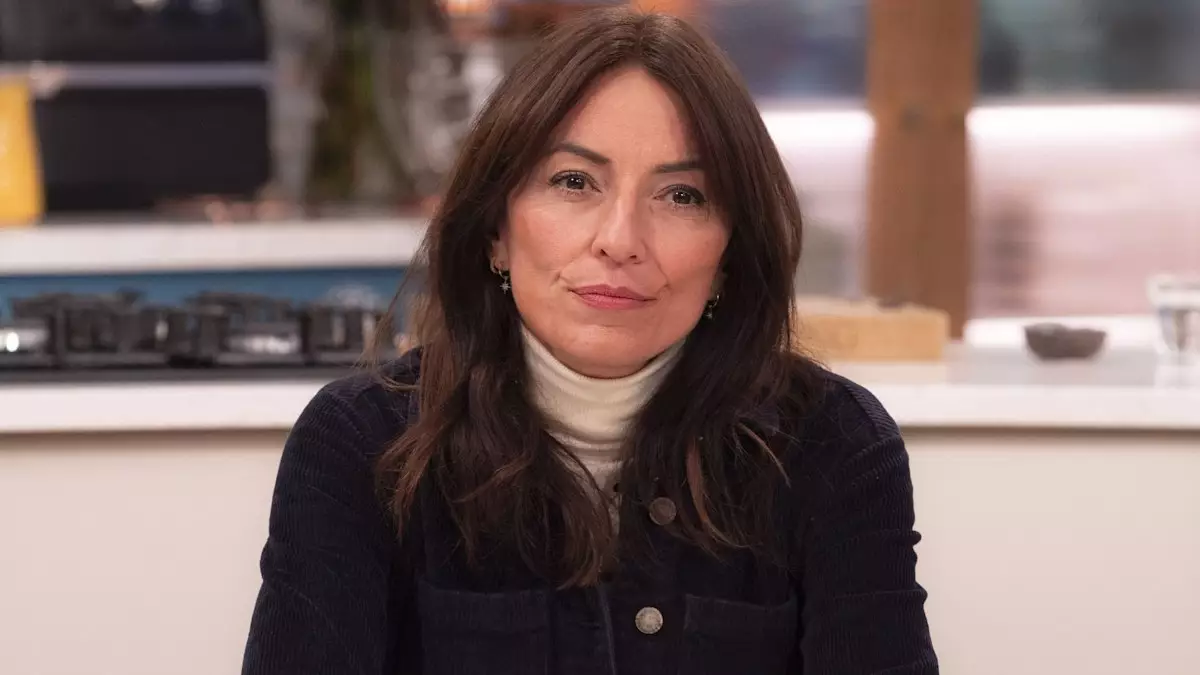In a poignant moment during Red Nose Day, renowned television presenter Davina McCall exhibited profound vulnerability, breaking down as she explored the significance of love and family in her life. The past year was a rollercoaster for McCall, marked by her unexpected diagnosis of a colloid cyst—a benign brain tumor discovered serendipitously during routine health checks associated with her advocacy for menopause awareness. This discovery catalyzed an extensive emotional and physical journey for the TV star, one that has undoubtedly shaped her outlook on life.
McCall candidly shared her narrative, reflecting on what it means to confront life-altering challenges. She declared, “It’s possibly the hardest thing I’ve ever been through,” encapsulating the complex emotions tied to her health struggles. This statement doesn’t just signal her personal anguish; it also resonates with countless individuals who grapple with similar trials. McCall’s experience underscores a universal truth: adversity often provokes profound introspection, leading us to reevaluate our priorities and the essence of resilience.
The Power of Support Systems
What truly stood out during her emotional revelation was the emphasis on the support system surrounding her—particularly her partner, Michael Douglas. This sentiment highlights a crucial aspect of navigating difficult circumstances: the importance of surrounding oneself with compassionate and reliable individuals. McCall’s gratitude for the “brilliance and the skills of lots of experts” alongside the steadfast support from her family emphasizes that healing is often a collective endeavor. It’s a reminder that one does not face their battles alone; rather, the connections we foster can be instrumental in overcoming life’s most formidable challenges.
In her conversation with Steven Bartlett on the “Begin Again” podcast, McCall shed light on the strains her illness placed not only on her but also on Douglas. The narrative she wove about their relationship is indicative of how crises can either fracture bonds or fortify them. It is intriguing to observe how vulnerability can cultivate intimacy, showcasing the delicate balance in interpersonal relationships when confronted with turmoil. McCall’s admission that this experience brought them “really, really close together” serves as a testament to the transformative power of love during tumultuous times.
Finding Strength in Transparency
Davina’s willingness to be open about her struggles is both brave and commendable. In an era where social media often distorts reality, her transparent approach to discussing health hurdles serves as a refreshing reminder of the strength found in authenticity. McCall’s heartfelt exchanges about her fears and uncertainties provide valuable insights into the human experience, encouraging others to voice their battles rather than suffer in silence.
The emotional release of tears that she exhibited during her recounting of these challenging events illustrates the healing power of expressing emotions. Far too often, we equate vulnerability with weakness; however, McCall wholly dispels this notion. Her story encourages us to embrace our feelings, reminding us that acknowledging pain is a crucial step toward recovery.
In sharing her story, Davina McCall stands as a beacon of hope and resilience, motivating others to confront their struggles with openness and an unwavering support network. Her journey not only highlights the necessity of vulnerability but also encapsulates an inspiring message about the enduring power of love and familial ties when life grows tough.

